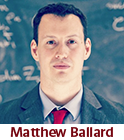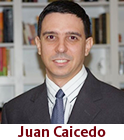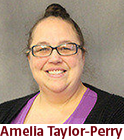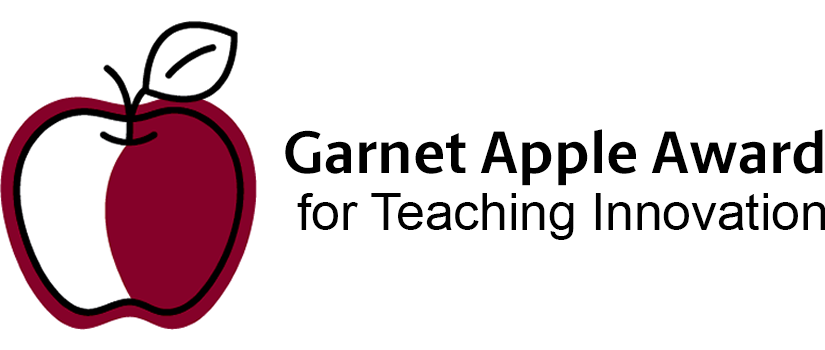The Garnet Apple Award for Teaching Innovation honors USC's exceptional faculty who demonstrate an ongoing commitment to best teaching practices and an ongoing record of developing innovative strategies to enhance student learning in their courses. Five recipients received this year’s award and are to be commended for their accomplishments. These honorees will be profiled over the next few months in USC communications, with formal recognition at the Vision, Innovation, Practice Teaching Award Reception in August.
Matthew BallardProfessor Matthew Ballard chaired an ad hoc department committee whose primary charge was to improve success rates of students in Math 141 and 142. He took a leadership role in reforming Calculus I (Math 141) and II (Math 142) courses, facilitating a growth mindset in calculus classrooms by implementing a system of Gateway Exams. The reforms yielded a striking decline in the failure rate for Math 141 students. He also created accessible mathematical content that benefits students who use screen readers. |
 |
Juan CaicedoProfessor Juan Caicedo adopts a student-centered approach to promote deep learning and stimulate growth in critical thinking skills. Realizing that standard office hours didn't provide enough support for his engineering statics students, he flipped the classroom. Innovations he developed to flip his classroom included the creation of class videos to leave the “lecture” to videos and the class for questions, the development of extensive class notes with material supporting the learning process, the utilization of a class response system question database that provides students with feedback, and the development of a homework template to respond to student's question “Where do I start?” so they aren't stuck even before starting to write anything on paper. |
 |
Cory SchnellAssistant Professor Cory Schnell has a well-defined teaching philosophy informed by his personal experiences in the classroom. He designs course material and classes to feature videos, readings, lectures, activities, and other techniques for diverse learners. He incorporates experiential learning into the classroom, retrofitting more academic or jargon-influenced concepts to student’s lived experiences and current events. Schnell facilitates a collaborative learning environment in his classroom. Each class is designed like a live event, bringing the class together as a community that allows students to hear a diverse set of perspectives and collectively work through topics. In his classes, he takes a “top-down” approach to assisting students with mastering difficult course materials. |
 |
Morgan StefikAssociate Professor Morgan Stefik's teaching methods are informed by the pedagogical theory of constructivism as well as research from the fields of psychology, neuroscience, metacognition, and behavioral economics. Informed by psychology, he promotes the development of a growth mindset and grit with students to increase their motivation level and their strength to persist through challenging course material. He also developed a set of chemistry jingles that capture course concepts within fun and memorable soundbites. |
 |
Amelia Taylor-PerrySenior Instructor Taylor-Perry transformed a forensic chemistry laboratory into a crime scene by designing a murder-mystery that the students solve using the skills and techniques learned in the lecture and lab. During the pandemic, she replaced hands-on learning with the creation of a virtual laboratory where she was the student and the teacher and provided a unique way for students to learn. The conversion of the freshman chemistry labs to an online format was seamless and many students felt as if they were actually in the lab when watching videos and completing the assignments. |
 |
